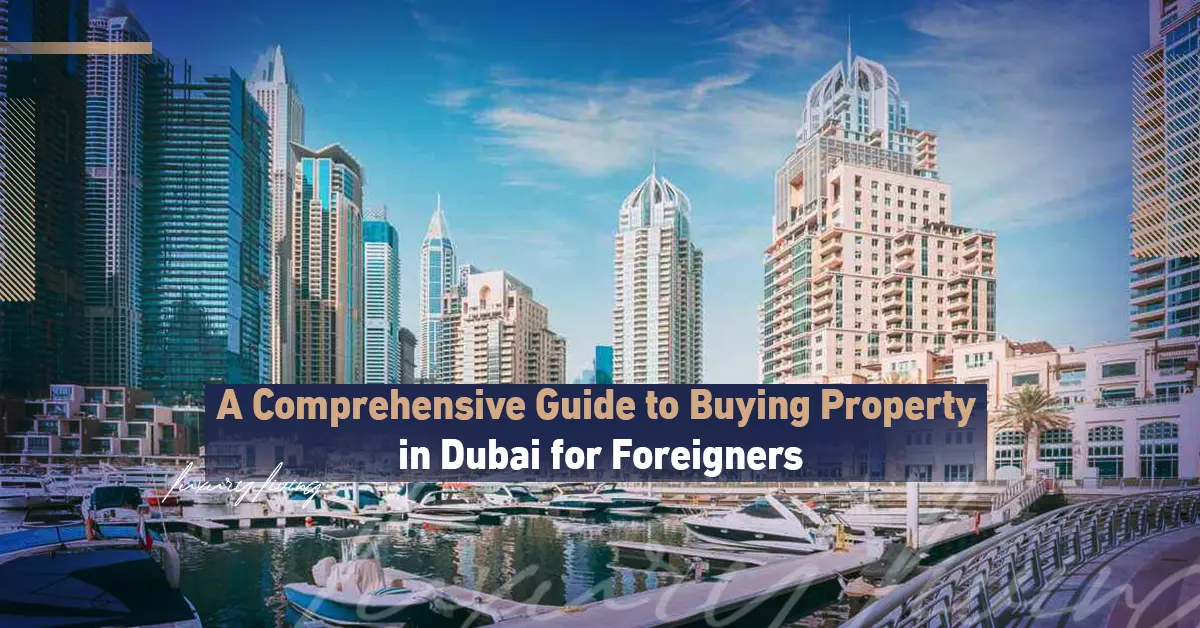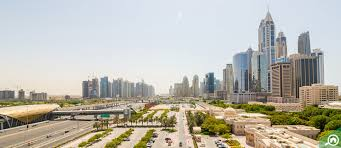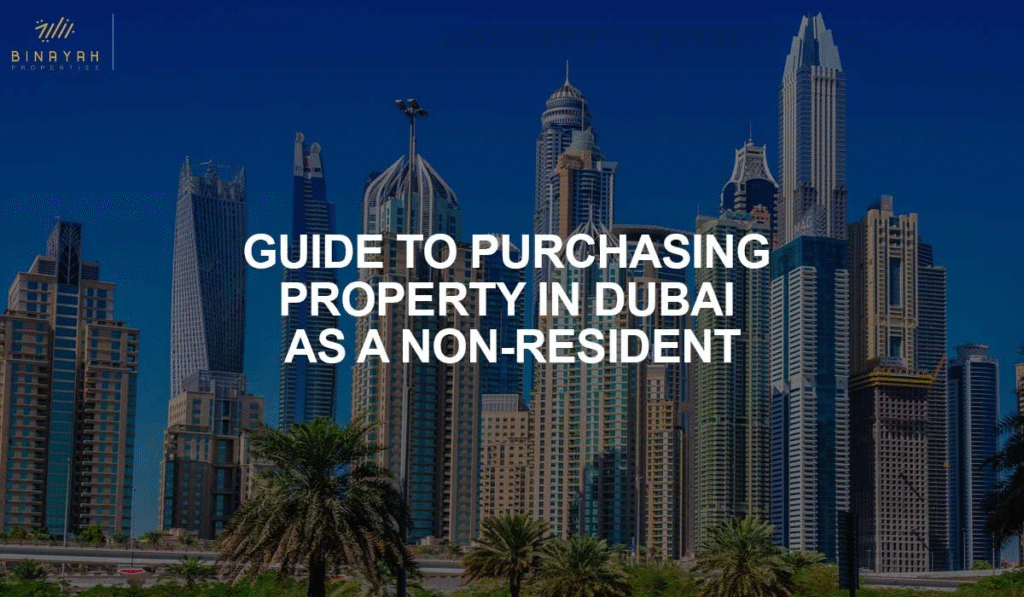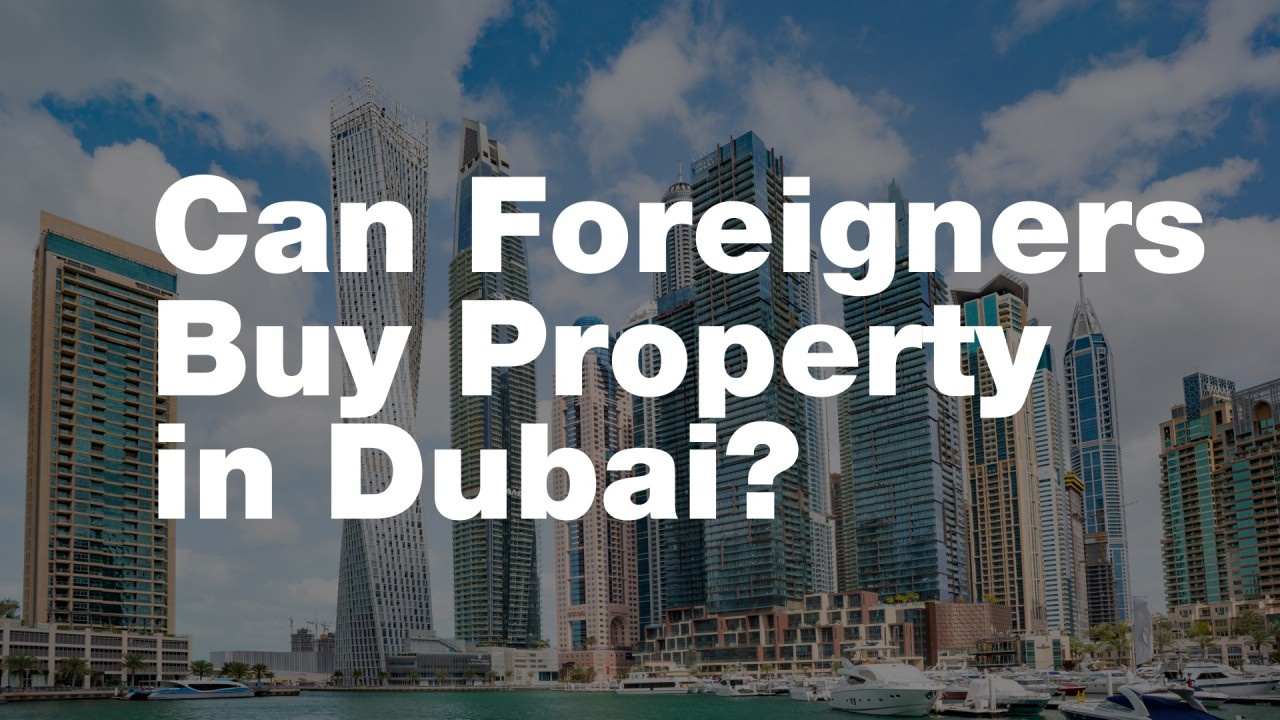Now Reading: How Foreigners Can Legally Buy Property in Dubai in 2025
-
01
How Foreigners Can Legally Buy Property in Dubai in 2025
How Foreigners Can Legally Buy Property in Dubai in 2025

Table of Contents
Foreigners Can Legally Buy Property: Dubai’s real estate market in 2025 is a global magnet, with 94,000 residential transactions worth AED 262.7 billion in H1, up 23.04% year-on-year. Foreigners are drawn to freehold zones offering 6–12% rental yields, 5–15% capital appreciation, and tax-free returns. Enabled by Decree No. 3 of 2006, non-residents can legally own property in designated areas like Dubai Marina and Downtown Dubai, with Golden Visa eligibility for investments over AED 2 million. This guide outlines the legal process for foreigners to buy property in Dubai in 2025, ensuring compliance with regulations and a secure investment.
Step 1: Understand Freehold Ownership Rules
Foreigners can purchase freehold properties in designated zones, granting full ownership rights in perpetuity, transferable to heirs. Key freehold areas include Dubai Marina, Jumeirah Village Circle (JVC), Business Bay, Dubai Hills Estate, and Palm Jumeirah. Unlike leasehold markets with limited tenure, freehold ownership ensures long-term security. Verify freehold status via the Dubai Land Department (DLD) portal or by checking the title deed, which must specify “freehold” and the buyer’s name. Non-freehold areas restrict ownership to UAE/GCC nationals, so confirm zoning with a RERA-registered agent.
Step 2: Research the Market and Select a Property
Identify properties in high-demand zones using tools like DXB Interact, Property Finder, or DLD’s transaction database. Focus on areas with strong yields (e.g., JVC at 7.5–9.3%, Dubai South at 8–11%) or luxury appeal (e.g., Palm Jumeirah at 5–7%). Off-plan projects like Creek Waters II (from AED 1.7 million) offer flexible payment plans (e.g., 60/40), while ready properties like Marina Shores provide immediate rental income. Research developer reliability (e.g., Emaar, Nakheel, DAMAC) via DLD’s developer rating system to ensure credibility and timely delivery.
Step 3: Engage RERA-Registered Professionals

Hire a Real Estate Regulatory Agency (RERA)-registered real estate agent to navigate listings, negotiate prices, and ensure compliance with DLD regulations. Agents must hold a valid Broker Registration Number (BRN), verifiable via the DLD’s Dubai REST app. Engage a legal advisor to review sales purchase agreements (SPAs) and mortgage contracts, particularly for off-plan properties. A tax consultant can optimize VAT exemptions (5% savings on residential purchases) and advise on ownership structures to minimize 9% corporate tax on rentals. Professionals reduce risks like fraud or non-compliance.
Step 4: Verify Developer and Property Credentials
For off-plan properties, confirm the developer’s escrow account is registered with DLD, ensuring funds are used solely for construction. Check the developer’s track record and project completion status via DLD’s project tracker. For ready properties, request a no-objection certificate (NOC) from the developer or homeowners’ association to verify no outstanding dues. Conduct a snagging survey (AED 3,000–5,000) for ready homes to identify defects. Use DLD’s title deed verification service to confirm clear ownership and avoid scams, as highlighted by DLD’s 2024 anti-fraud campaigns.
Step 5: Secure Financing or Payment Plan
Foreigners can access mortgages from UAE banks, offering 50–70% loan-to-value for non-residents at 3–5% annual rates, subject to Central Bank regulations. Required documents include a passport, Emirates ID (if applicable), proof of income, and bank statements. Mortgage registration fees are 0.25% of the loan plus AED 290. For off-plan properties, leverage developer payment plans (e.g., 10/70/20 or 50/50), requiring a 10–20% deposit (e.g., AED 170,000 for a AED 1.7 million property). Verify payment milestones align with construction progress via DLD reports. Use UAE-based forex services to lock in exchange rates for overseas funds.
Step 6: Sign the Sales Purchase Agreement and Pay Deposit
Once a property is selected, sign the SPA, which details the price, payment terms, handover date, and conditions. For off-plan properties, deposit 10–20% (e.g., AED 200,000 for a AED 2 million property) into the developer’s escrow account. For ready properties, pay the deposit to the seller’s account. Submit the SPA to DLD for interim registration (AED 1,000–2,000) to formalize the transaction. Ensure the SPA includes penalties for developer delays and specifies freehold ownership. A legal advisor should review the SPA to confirm compliance with RERA regulations.
Step 7: Complete the Purchase and Register with DLD
On handover (off-plan) or purchase completion (ready properties), pay the remaining balance, 4% DLD transfer fee (often split with the seller), and registration fees (AED 4,200 for properties over AED 500,000, including 5% VAT). Finalize the transaction at a DLD office or Trustee Centre, where the title deed is issued, confirming freehold ownership in the buyer’s name. For Golden Visa eligibility (AED 2 million threshold), submit the title deed, passport, health insurance, and fees (AED 9,884.75 for the primary applicant, AED 5,774.50 per family member) to DLD Cube for processing.
Step 8: Post-Purchase Compliance and Management

After purchase, register utilities with DEWA (AED 1,000–2,500 setup fee). For rentals, obtain a holiday home permit for short-term lets (e.g., Airbnb in Dubai Marina, yielding 9–12%) or register long-term leases via DLD’s Ejari system (AED 220). Budget for 5% municipality housing fees on rental income and annual maintenance (1–2% of property value). Engage property management firms for non-resident owners to handle tenant relations and optimize yields using the Dubai Smart Rental Index 2025. Monitor market trends via DLD data for resale or rental strategies.
Strategic Tips for Foreign Buyers
- Target freehold zones like JVC for affordability (from AED 420,000) or Dubai Marina for luxury rentals (6–10% yields).
- Budget for total costs: 4% DLD fee, 2% agent commission plus 5% VAT, service charges (AED 7–30 per sq. ft.), and mortgage fees if financing.
- Verify escrow accounts and developer ratings via DLD to avoid delays or fraud.
- Leverage tax-free gains by holding properties individually or use DIFC/DMCC free zone companies to minimize 9% corporate tax on rentals.
- Use DXB Interact and Property Finder for market insights and pricing trends.
- Avoid scams like fake Golden Visa offers by sticking to DLD-approved developers and RERA-registered agents.
Conclusion
Foreigners can legally buy property in Dubai in 2025 by understanding freehold rules, researching the market, engaging RERA-registered professionals, verifying credentials, securing financing, signing the SPA, registering with DLD, and managing post-purchase requirements.
With 6–12% yields, 5–15% capital gains, and Golden Visa benefits, Dubai’s freehold zones offer secure investment opportunities. By leveraging DLD tools, verifying compliance, and working with trusted professionals, foreign buyers can navigate the process confidently, securing properties in a thriving market poised for long-term growth.
read more: Dubai Property Investment: 7 Key Reasons Foreigners Buy in 2025



















